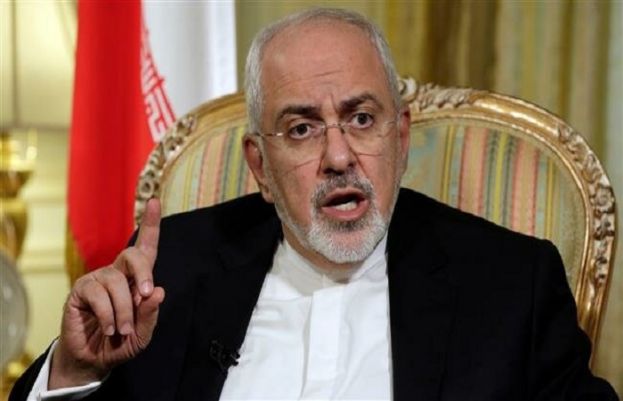
"NeverThreatenAnIranian. Try respect—it works!" Zarif said in a post on his official Twitter account on Monday amid a spike in tensions between Tehran and Washington.
The Iranian foreign minister added that the policy of "economic terrorism and genocidal taunts" pursued by Trump would fail to "end Iran."
The top Iranian diplomat emphasized that Trump has been “goaded” by the B-Team and “hopes to achieve what Alexander, Genghis & other aggressors failed to do."
The hawkish “B-team” is comprised of US National Security Adviser John Bolton, Israeli Prime Minister Benjamin Netanyahu, Saudi Crown Prince Mohammed bin Salman and Abu Dhabi Crown Prince Mohammed bin Zayed Al Nahyan.
Goaded by #B_Team, @realdonaldTrump hopes to achieve what Alexander, Genghis & other aggressors failed to do. Iranians have stood tall for millennia while aggressors all gone. #EconomicTerrorism & genocidal taunts won't "end Iran". #NeverThreatenAnIranian. Try respect—it works!
— Javad Zarif (@JZarif) May 20, 2019
Zarif's comments followed an earlier Tweet by the US president who said the Islamic Republic would be destroyed if it attacked US interests.
"If Iran wants to fight, that will be the official end of Iran. Never threaten the United States again," Trump tweeted.
If Iran wants to fight, that will be the official end of Iran. Never threaten the United States again!
— Donald J. Trump (@realDonaldTrump) May 19, 2019
Trump posted his anti-Iran tweet after a Sunday night rocket attack on the Green Zone of the Iraqi capital Baghdad, where the Iraqi government's administrative buildings and foreign missions, including the US embassy, are located. No one has claimed responsibility for the attack, which came in the wake of back-to-back sudden decisions taken by the US recently, including its withdrawal of "non-essential" staff from Iraq.
Although the apparent Katyusha attack hurt no one and its target was not specified, Trump was quick to point the finger at Iran.
The Green Zone, a 10-square-kilometer area in central Baghdad, is home to Iraqi government offices and those of other foreign governments, including the US.
Tensions started to mount between Tehran and Washington last May, when Trump pulled his country out of the 2015 nuclear deal with Iran, officially known as the Joint Comprehensive Plan of Action (JCPOA), and re-imposed harsh sanctions against the Islamic Republic in defiance of global criticisms.
The tensions saw a sharp rise on the first anniversary of Washington's exit from the deal as the US moved to ratchet up the pressure on Iran by tightening its oil sanctions and sending military reinforcements, including an aircraft carrier strike group, a squadron of B-52 bombers, and a battery of patriot missiles, to the Middle East.
On May 5, Bolton — an ardent Iran hawk — said the deployment was in response to a “troubling and escalatory indications” of Iranian activity in the region, without giving details or evidence to support the claims.
from Latest News - SUCH TV http://bit.ly/2EmHgWm


0 Comments